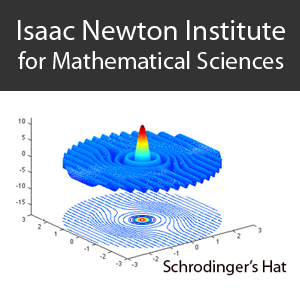A Data-Driven Edge-Preserving D-bar Method for Electrical Impedance Tomography
Duration: 15 mins
Share this media item:
Embed this media item:
Embed this media item:
About this item

| Description: |
Siltanen, S (University of Helsinki)
Monday 10 February 2014, 15:30-16:15 |
|---|
| Created: | 2014-02-14 13:59 |
|---|---|
| Collection: | Inverse Problems |
| Publisher: | Isaac Newton Institute |
| Copyright: | Siltanen, S |
| Language: | eng (English) |
| Abstract: | Co-authors: Sarah Hamilton (University of Helsinki), Andreas Hauptmann (University of Helsinki)
Electrical Impedance Tomography (EIT) is a non-invasive, inexpensive, and portable imaging modality where an unknown physical body is probed with electric currents fed through electrodes positioned on the surface of the body. The resulting voltages at the electrodes are measured, and the goal is to recover the internal electric conductivity of the body from the current-to-voltage boundary measurements. The reconstruction task is a highly ill-posed nonlinear inverse problem, which is very sensitive to noise, and requires the use of regularized solution methods. EIT images typically have low spatial resolution due to smoothing caused by regularization. A new edge-preserving EIT algorithm is proposed, based on applying a deblurring flow stopped at minimal data discrepancy. The method makes heavy use of a novel data fidelity term based on the so-called CGO sinogram. This nonlinear data preprocessing step provides superior robustness over traditional EIT data formats such as curr ent-to-voltage matrix or Dirichlet-to-Neumann operator. Related Links: http://arxiv.org/abs/1312.5523 - Arxiv preprint |
|---|---|
Available Formats
| Format | Quality | Bitrate | Size | |||
|---|---|---|---|---|---|---|
| MPEG-4 Video | 640x360 | 1.93 Mbits/sec | 218.10 MB | View | Download | |
| WebM | 640x360 | 802.43 kbits/sec | 88.26 MB | View | Download | |
| iPod Video | 480x270 | 520.74 kbits/sec | 57.21 MB | View | Download | |
| MP3 | 44100 Hz | 249.74 kbits/sec | 27.47 MB | Listen | Download | |
| Auto * | (Allows browser to choose a format it supports) | |||||

